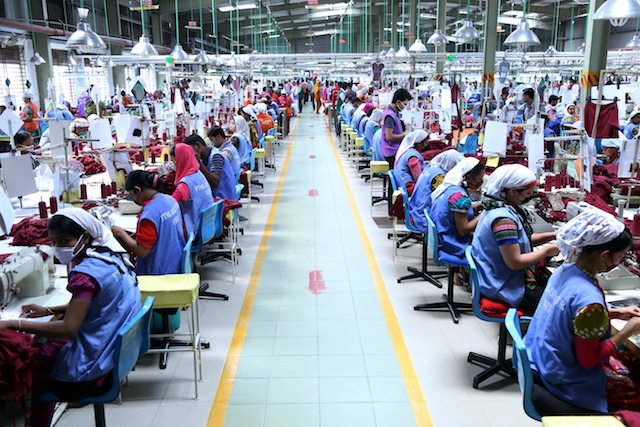Dhaka: Bangladesh’s garment sector—the lifeline of its economy—is reeling from a massive trade shock after US President Donald Trump imposed a crushing 37% tariff on Bangladeshi ready-made garments (RMG).
Industry leaders warn the fallout could cripple the country’s largest export engine, worth $8.4 billion in annual US trade alone.
The sudden tariff hike, unveiled during a high-profile White House event on April 3, raises total duties on cotton-blend products to 54%, effectively doubling costs for American buyers.
Bangladesh, already struggling with post-political upheaval recovery, now faces an export exodus as global brands explore cheaper sourcing hubs like Jordan, Egypt, and Kenya.
“This is a body blow,” said Rakibul Alam Chowdhury of RDM Group. “Buyers will shift overnight. We’re not ready for this.”
Chief Adviser Muhammad Yunus convened an emergency meeting late Saturday in Dhaka, bringing together top officials from Bangladesh Bank, the National Board of Revenue (NBR), and the Commerce Ministry.
A follow-up meeting is scheduled for Sunday to map out an economic counter strategy.
Trump’s “reciprocal tariffs” target nations with high import duties on US goods. Bangladesh, allegedly imposing up to 74% on American imports, was hit hard.
But industry experts like Syed M. Tanvir of Pacific Jeans argue the numbers are misleading. “The 74% figure isn’t based on real tariffs—it is from a formula calculating trade deficit ratios,” he said.
Bangladesh’s RMG sector, responsible for 80% of export earnings, now finds itself squeezed between rising production costs and an evaporating price advantage.
“We’ve already received buyer requests to shift orders to Jordan,” said Shovon Islam, MD of Sparrow Group. “If this continues, shipments will stall, payments will freeze—just like during COVID.”
The interim government says it is reviewing tariffs on US imports and considering aggressive diplomacy.
Options on the table include zero-duty access for US cotton and agricultural goods, increased defense imports, and direct talks with Washington to restore trade balance.
Former BGMEA VP Md M Mohiuddin Chowdhury believes a bold move could turn the tide. “If we offer duty-free access to US goods and push for bilateral trade talks, we could still strike a game-changing deal.”
With rivals like Vietnam already negotiating tariff waivers, Bangladesh is racing against time to avoid losing its foothold in the world’s most lucrative apparel market.




